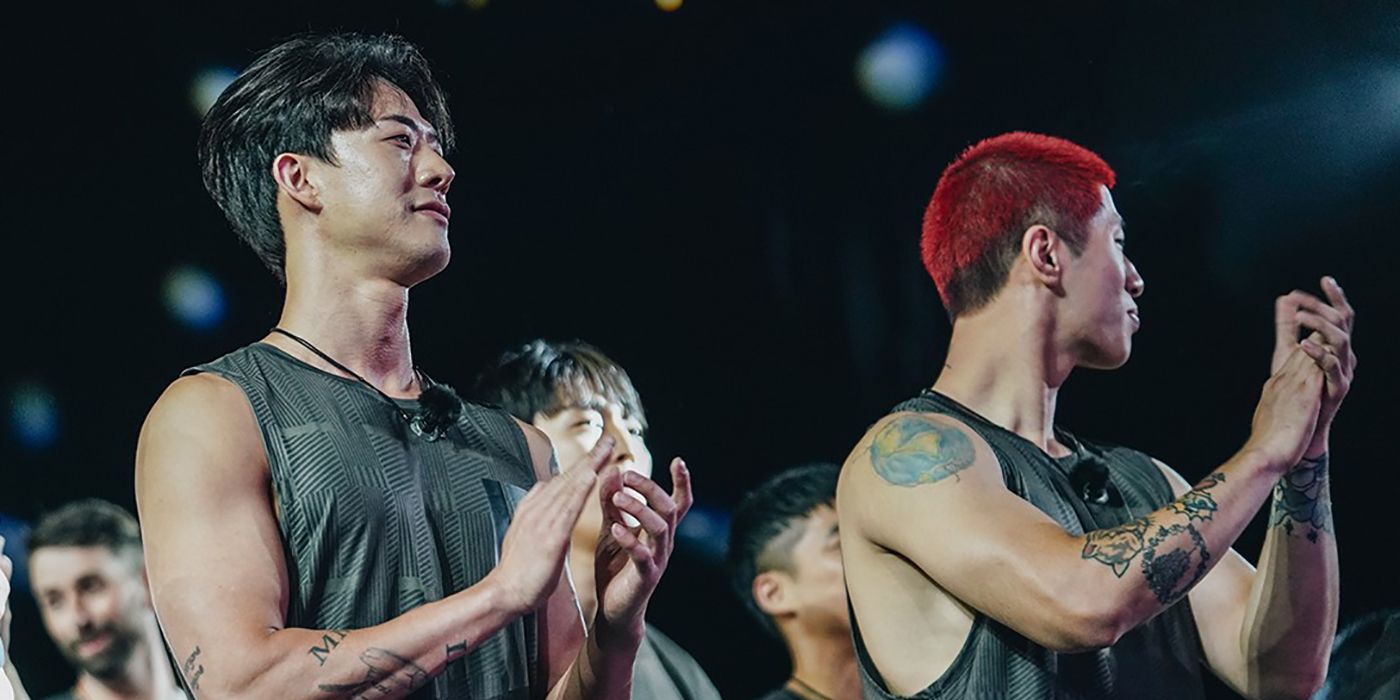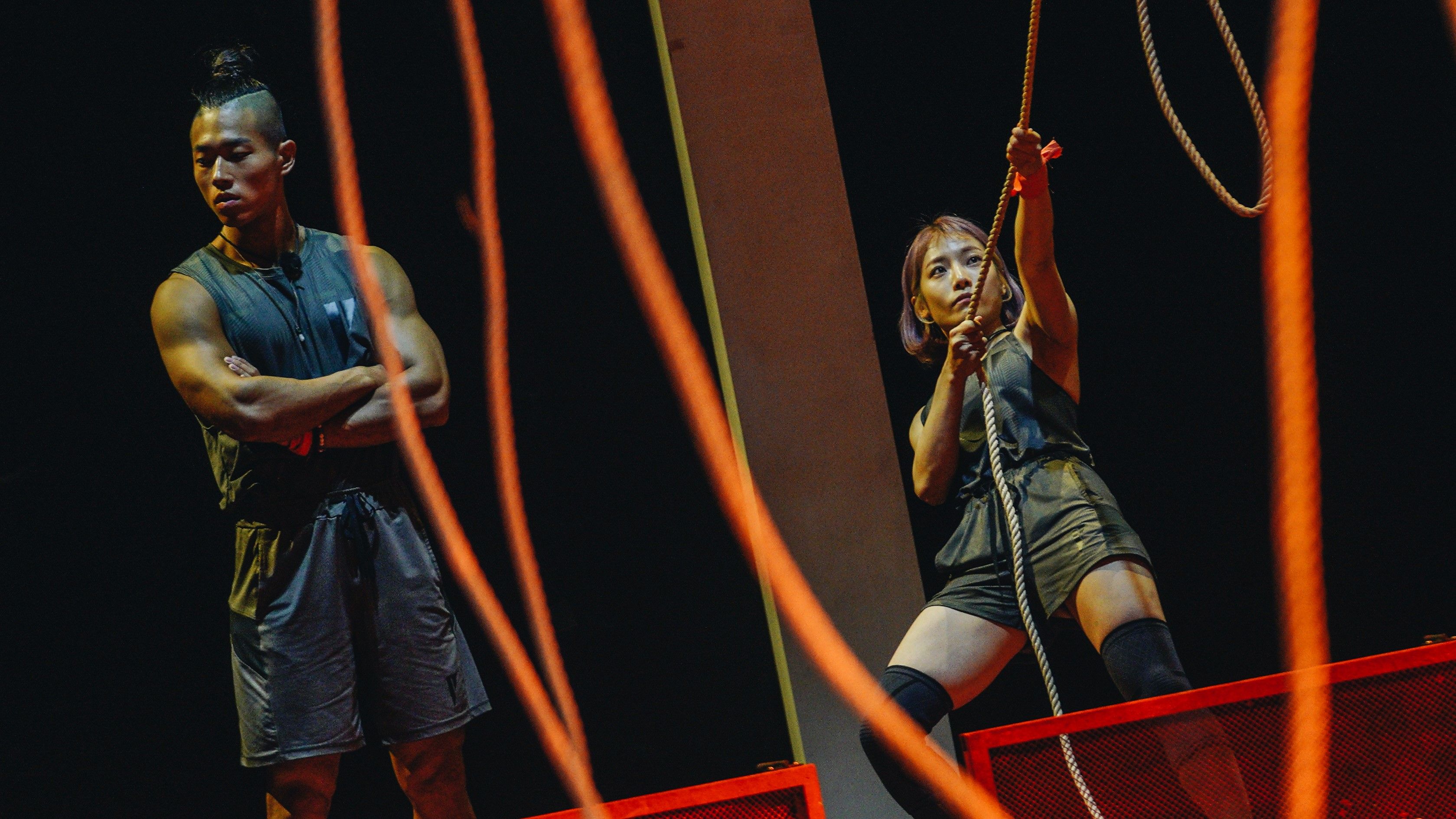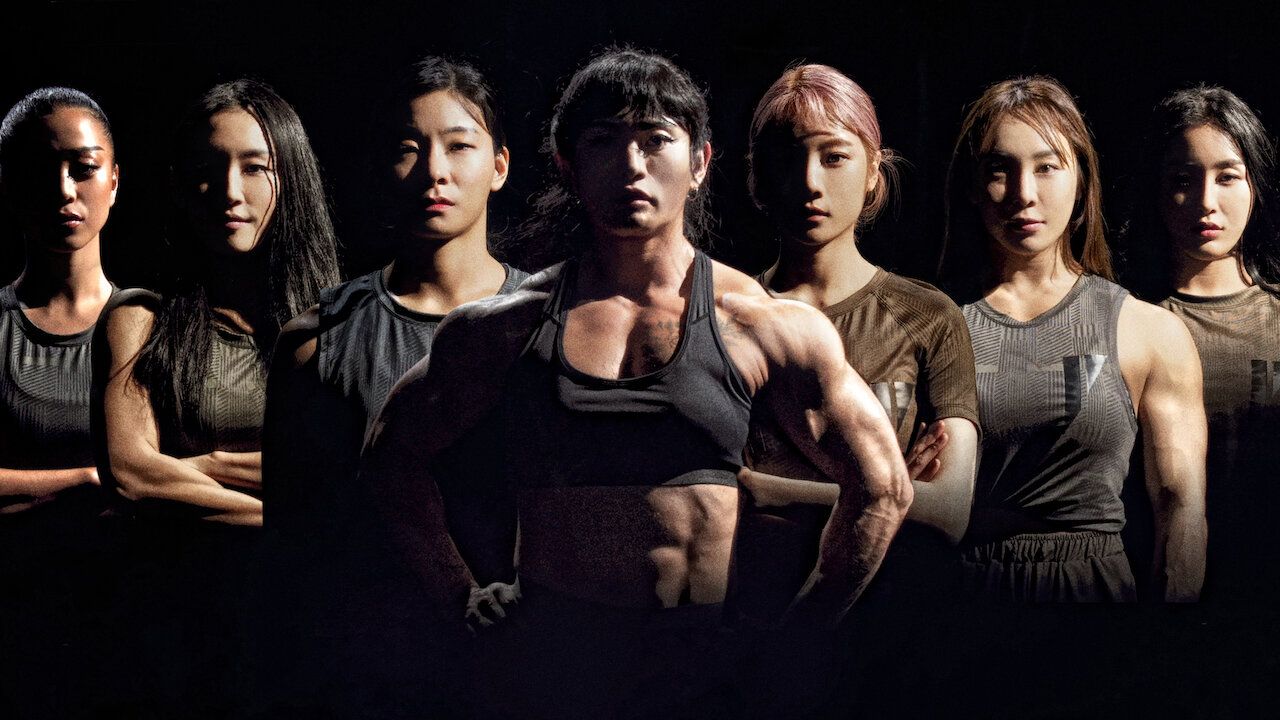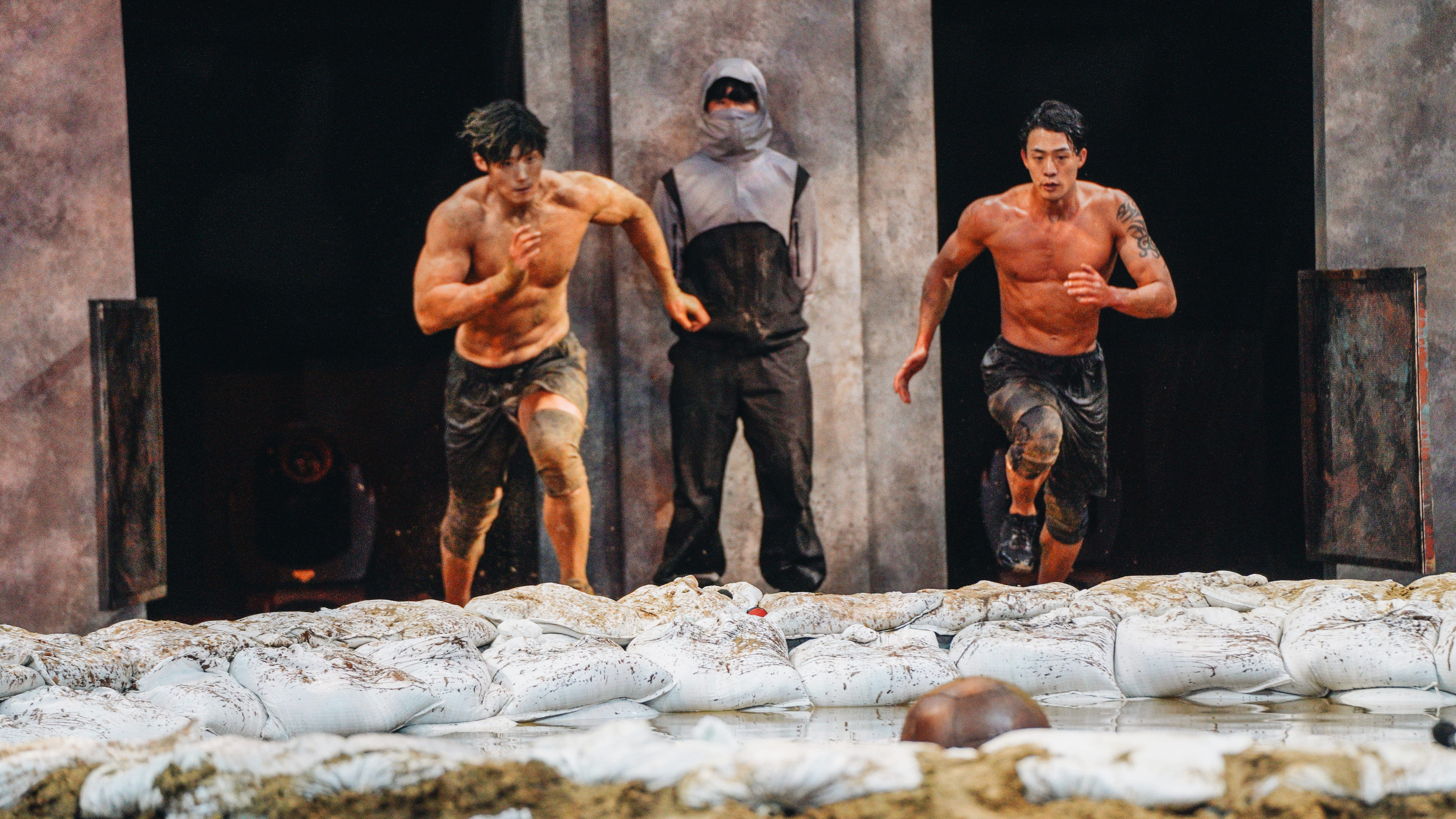The reality TV boom of the early 2000s instilled both horror and hope, that perhaps such a terrible trend would soon die off. Instead, dozens of American idols, hundreds of thrown wine glasses, the Kardashians, and one Snooki later, the genre has become a permanent fixture in the pop culture landscape. And why not? To be honest, many of its thrills are irresistible, but those looking for a different register only find refuge in foreign markets. Maybe it’s the relaxed Great British Bake Off holding the quality of food over the speed of competition, or Single’s Inferno, with its wholesome, often awkward romance. For fans of fitness contests like Ninja Warrior or Tough As Nails, there’s a new show on the Netflix Top 10 waiting to be your next reality obsession from overseas. In Physical: 100, a hundred South Korean contestants — athletes, soldiers, bodybuilders — compete for a cash prize in glossy, high-tech sets, with elimination coming at their sweatiest and most breathless. Certainly, there are shades of Squid Game here, but with the official attempt at a Squid Game reality show faltering, Physical: 100 stands as a healthy and compelling alternative.
In Physical: 100, there are no shots of the outside world, only a series of massive and enigmatic sets. There is also no on-screen host, but a disembodied voice playing over speakers like the Front Man, giving instructions on upcoming events. In the very first “pre-quest” challenge, the 100 contestants are split into two groups and stand on a numbered grid. A lattice of metal bars descends from the ceiling, and everyone grabs on before it recedes. The floor then splits open to reveal a steaming pool of water. This is an important and necessary difference between Physical: 100 and Squid Game, and by extension, the Squid Game reality show: the pool of water is not deadly. The contestants have to hang on for as long as they can, but falling doesn’t lead to injury. Still, there’s enough of a kersplat as they dunk into the water, maybe letting loose a shriek or an expletive before doing so.
East vs. West Is a Gift and Curse in ‘Physical: 100’
The pre-quest winners are awarded with an advantage for the first actual “quest,” and the winners are those who held on longest within the top 50 percentile. This is where the other element of Squid Game finds adaptation, beyond set design and general spookiness: human psychology. The 100 are funneled into the next mysterious room, with one half standing on corresponding numbers on the floor, and the other half standing on an elevated platform, an extremely unsubtle visual metaphor that nonetheless encourages feelings of both inferiority and superiority. The advantage is that the top 50 can choose their opponents for the first one-on-one challenge, introducing some of that classic American-style strategizing. Unfortunately, many of the players in the top 50 don’t do as expected, and instead pick from among the top 50. It’s like reverse-cheating! And when selections are made, the two contestants shake hands and share encouraging words.
This is where the decidedly non-American tendencies of a Korean reality show both refresh and seem to conflict with the attempts at, well, conflict. In the first episode, it’s awfully cute that these incredibly muscled men and women drop their natural swagger to zoom into a polite greeting. This happens over and over again, as each contestant enters the room and greets everyone else, and by the time they’re done, the episode is over. Yes, the opening episode — Physical: 100’s own greeting — is almost entirely devoted to introducing the cast, with cutaways to talking head interviews and highlight reels of their careers. Leaving someone out would be rude? Without a doubt, this makes for a tremendous pacing problem, and the show suffers from a lack of dramatic tension. For the most part, there are no stakes as we understand them, no rivalries or backstabbing. But when a team of straining, sweating contestants figures out the trick to pulling a 1.5-ton ship up a ramp, it’s a moment of dramatic revelation; it’s all about the physical contest.
The Stars of ‘Physical: 100’ Shine Brightly
In fact, much of the entertainment in the early episodes is generated by the contestants themselves. Maybe it’s Jeon Young, contortionist choreographer for the zombies of Kingdom, challenging his opponent to a dance-off, or the MMA fighter who decides to discard a game’s rules in favor of a sparring match with the legend Yoshihiro Akiyama, here known as Choo Sung-hoon, an absolute monster in these arenas. Where one can feel the heavy hand of producers in most reality TV shows, the finer points of the quests’ rules are withheld from both the audience and the contestants, allowing a breadth of player agency well exploited by larger-than-life personalities. And then, on the other end of that equation, there’s the saga of Jang Eun-sil.
While the machinations of Physical: 100 only sometimes provoke the needed psychological response in contestants, they align in perfect harmony to repeatedly screw over one of them, the wrestling champion Eun-sil, who’s at one point elected to be a team leader in a tiered voting system. “Why me?” she says, the last of 10 chosen and the only woman. The 10 leaders stand shoulder-to-shoulder facing the others, who are instructed to line up before the leader of their choosing. Naturally, most of them line up before the first leader, who then makes cuts. Only one player — another woman — chooses Eun-sil, who’s eventually saddled with all the misfits. Her team is viewed as the weakest, and promptly chosen as opponents by a more confident leader for the upcoming challenge.
The Drama of ‘Squid Game’ with None of the “Drama”
When the 456 contestants of Squid Game had to break up into teams, the men were dead set against choosing women (and old men), but the game turned out to require more than brute strength. Just as the American show Tough As Nails spotlights women with non-Hollywood physiques, Physical: 100 also dispels preconceptions about what gendered bodies are supposed to be or do. The biggest guys fall first on the hanging challenge, unable to handle their weight, and if size is an advantage in a given event, it’s only one tool in the toolbox. That said, Jang Eun-sil may be the scariest competitor for her sheer strength in addition to her skill, established after bodying a female special forces soldier in a one-on-one match. She and her underdog team are put to the test in a challenge that’s part obstacle course, part labor, where victory is determined by strategy, communication, and stamina. It’s anyone’s game, whether farmer or mountain climber, old or young, man or woman. However, before the winner is declared, the episode smashes to black and the credits roll. The sadism of these constant cliffhangers is a further indicator of its prestige TV influences.
And yet, Physical: 100 succeeds where the Squid Game reality show has already accumulated a refrigerator’s worth of bad headlines by adopting only the aesthetic of Hwang Dong-hyuk’s megahit, not its thematic framework. Where Squid Game was a study of ruthless human psychology under capitalism, Physical: 100 offers an equally important social lesson about how we define and derive “strength,” with all its corresponding attributions of value in society. Whether all the contestants believe it, men and women are equal competitors in these challenges which emphasize a variety of strengths, creating a final, holistic visual metaphor — this time, for egalitarianism. And among these contestants is a proper embarrassment of compelling talent, from the indomitable Sung-hoon and Eun-sil to the infectiously enthusiastic Miracle and, of course, the “watching for the plot” types like Cha Hyun-seung, also seen on Single’s Inferno. Initially unassuming, with its slow-burn pace and minimalist presentation, by the time Physical: 100 strikes, there’s no escaping its well-toned grip.




